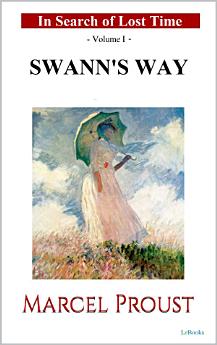Swann's Way
Kuhusu kitabu pepe hiki
Celebrated for its lyrical prose and psychological depth, Swann's Way has become a cornerstone of modernist literature. Proust's innovative narrative style, characterized by long, intricate sentences and a fluid treatment of time, revolutionized the novel form and influenced generations of writers. His ability to capture fleeting emotions and the subtleties of inner life makes the work both intellectually rich and emotionally resonant.
The enduring significance of Swann's Way lies in its exploration of how memory and consciousness interact with the passage of time. By delving into the intricacies of human thought and the beauty of everyday moments, Proust offers readers a timeless reflection on love, art, and the persistence of the past in shaping the present.
Kuhusu mwandishi
Marcel Proust was a French novelist, essayist, and critic, widely regarded as one of the most significant literary figures of the 20th century. Born in Auteuil, a suburb of Paris, Proust is best known for his monumental seven-volume novel In Search of Lost Time ( À la recherche du temps perdu), a work that revolutionized the form and scope of the modern novel. Through introspection, memory, and detailed psychological exploration, Proust crafted a richly textured narrative that has influenced generations of writers.
Proust's early writings include essays and short stories published in literary journals, but it was In Search of Lost Time, published between 1913 and 1927, that defined his legacy. The novel explores themes of memory, time, art, love, and identity through the narrator's reflections on his life and the people around him. One of its most famous passages — about the taste of a madeleine dipped in tea — triggers an involuntary memory that opens the door to an exploration of the past, demonstrating Proust's concept of "mémoire involontaire."
Proust's influence on literature is vast. His introspective style and exploration of subjective time prefigured many of the themes that would come to define modernist and postmodernist literature. Writers such as Virginia Woolf, James Joyce, and Samuel Beckett drew inspiration from his techniques and thematic focus. His method of delving into the inner workings of the human mind and his emphasis on sensory experience and memory profoundly altered the structure of the novel.
Beyond literary circles, Proust's insights into human nature, art, and memory continue to resonate with philosophers, psychologists, and artists. His work is often cited as a deep meditation on the passage of time and the persistence of the self amid change.











